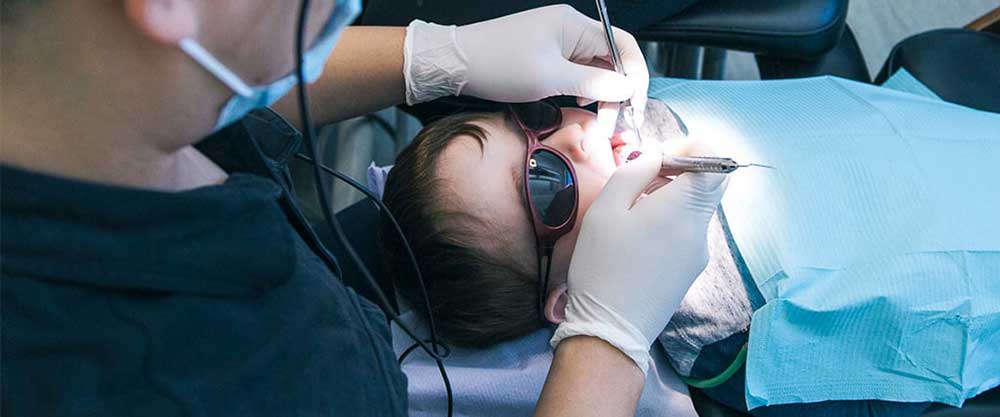
07
Sep
How to Prevent Tooth Sensitivity

What is tooth sensitivity?
Tooth sensitivity, also known as dentin hypersensitivity or root sensitivity, typically results from worn tooth enamel or when the root of a tooth becomes exposed. As enamel breaks down and gums change over time, they often uncover or expose the dentin of the tooth which is much more sensitive. When the tooth is no longer protected, simple activities like brushing, eating and drinking can cause discomfort, temporary sensitivity or significant pain.
What causes tooth sensitivity?
The following dental issues are known to cause sensitive teeth:
- Worn tooth enamel caused by hard toothbrushes, pressure and aggressive brushing (including the use of abrasive toothpaste).
- Tooth erosion caused by overconsumption of extremely acidic foods and beverages.
- Tooth decay, loose fillings and cracked teeth that cause dentin to become exposed.
- Gum recession that exposes the dentin and root surface area of your tooth.
- Tooth abrasion caused by grinding your teeth.
- Naturally shrinking gums caused by lifetime wear and tear (can also be the result of gum disease).
- Gum disease caused by plaque and tartar buildup on your teeth.
- Common dental treatments such as crowns, fillings and tooth bleaching are known to create temporary tooth sensitivity.
How can I prevent tooth sensitivity?
You can prevent and reduce your likelihood of developing sensitive teeth by ensuring your mouth is as healthy as possible by practicing good oral hygiene. This will support the long-term health of your teeth, prevent gum recession and periodontal disease.
Here are our tips to maintain healthy teeth:
- Use a soft-bristled toothbrush and low abrasion toothpaste.
- Be careful not to brush too hard.
- Avoid highly acidic foods and drinks and go for fibre-rich fruits and vegetables which will help your mouth fight off acid and bacteria that try to eat away at your tooth enamel.
- Try to unclench your teeth or use a mouth guard when you sleep to minimize grinding.
- Reduce the use of bleaching and whitening products. Luckily these treatments only cause temporary sensitivity but it could cause compounding effects if used consistently over time.
- Professional fillings or gum grafts to cover exposed roots.
What should I do if I have sensitive teeth?
If you’re bothered by sensitive teeth or believe you are developing a sensitivity, visit our clinic for an oral assessment.
Our dentists and hygienists will examine your mouth and help determine the underlying cause of your tooth sensitivity.
Ignoring tooth sensitivity can lead to other serious oral health problems. If you are experiencing pain and discomfort when brushing your teeth or notice your gums are receding, causing you to brush poorly, there is a greater risk of tooth decay and gum disease.
Ask our team at Stoney Creek Village Dental.
Share this Article

Dr. Yohannes Melkie
Dr. Yohannes Melkie obtained his
Biomedical Science degree from the University of Ottawa and his Doctor
of Dental Surgery degree from the University of Western Ontario. After graduation, he moved to Fort Mac,
where he has practiced since.
Dr. Melkie follows various conferences and training sessions to stay current so he can provide the best
quality treatment to his patients. He enjoys collaborating with patients to ensure they get the best
care.
